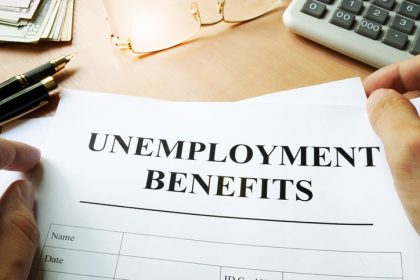In a unanimous decision, the U.S. Supreme Court ruled that a Catholic organization qualifies for a tax exemption even though its operations were not primarily religious. The decision overturned a Wisconsin Supreme Court ruling.
Background
Under Wisconsin law, certain religious organizations may be exempt from paying taxes, including unemployment compensation taxes. This is similar to laws in other states that provide exemptions based on specific criteria. In other words, tax-exempt status for federal income tax purposes doesn’t always translate to state income or other tax exemptions.
In this case, Wisconsin law exempts any “church or convention or association of churches” an services provided “[b]y a duly ordained, commissioned or licensed minister of a church in the exercise of his or her ministry or by a member of a religious order in the exercise of duties required by such order.” The exemption also covers nonprofit organizations “operated, supervised, controlled, or principally supported by a church or convention or association of churches,” but only if they are “operated primarily for religious purposes.”
Catholic Charities Bureau, Inc. (CCB) and four related organizations sought an exemption because they are separately incorporated from the Diocese, but claim federal tax-exempt status under the Roman Catholic Church’s group tax exemption (this “umbrella” treatment is common in the tax-exempt world).
The Wisconsin Supreme Court denied the exemption, finding that CCB and the related organizations were not “operated primarily for religious purposes because the charitable services went beyond theology. The U.S. Supreme Court disagreed, finding that drawing those lines violated the First Amendment.
About CCB
The Catholic Charities Bureau has, it says on its website, provided “services to the poor, the disadvantaged, the disabled, the elderly and children with special needs as an expression of the social ministry of the Catholic Church in the Diocese of Superior” for more than 100 years. Today, CCB boasts more than 50 programs serving more than 10,500 people—services are not limited by race, color, national origin, or religion.
That apparently innocuous distinction was one of the arguments used by the state against CCB. The organization’s activities did not qualify as “typical” religious activities because they serve and employ non-Catholics. The state also found that CCB does not “attempt to imbue program participants with the Catholic faith,” and its services to the poor and needy could also be provided by secular (non-religious) organizations.
Facts
Congress enacted the Federal Unemployment Tax Act (FUTA) in 1935 to provide benefits to unemployed workers. The FUTA tax rate is 6% on the first $7,000 paid to employees during the year and is paid by all employers unless they qualify for an exemption. Notably, FUTA exempts church-controlled religious organizations “operated primarily for religious purposes” from paying unemployment tax, the result of an exemption granted by Congress in 1970. Since then, 47 states have adopted language that is identical to, or nearly identical to FUTA’s language.
FUTA tax may be offset by credits of up to 90% for state unemployment taxes paid—all states have complementary statutes that impose, at a minimum, the coverage mandated by federal law. This tax is only paid by employers, not employees. The tax funds unemployment programs.
(CCB noted in its petition that employees have separate unemployment coverage. Wisconsin bishops previously created the Church Unemployment Pay Program (CUPP) “to assist parishes, schools, and other church employers in meeting their social justice responsibilities by providing church funded unemployment coverage.”)
CCB applied for an exemption under state law. The Department of Workforce Development determined that CCB and its sub-entities were not primarily operated for religious purposes and denied the exemption. CCB appealed, and after a hearing, the administrative law judge reversed the decision.
However, the Labor and Industry Review Commission reversed the reversal (stay with me), finding that the exemption turns on an organization’s “activities, not the religious motivation behind them or the organization’s founding principles.” Since CCB provided secular (non-religious) services, the Commission concluded that they do not qualify for an exemption
The matter went to court (outside of the administrative channels) and ended up in the Wisconsin Supreme Court, which held on March 14, 2024, that CCB’s “activities are primarily charitable and secular” and not religious, which means it would not qualify for the exemption.
Proceedings
CCB filed a petition for writ of certiorari with the Supreme Court in May of 2024. Parties do that when seeking a review of the case—typically, it’s in response to another court decision.
In that petition, CCB noted that in the 1980s, the U.S. Supreme Court granted review in two cases (St. Martin Evangelical Lutheran Church v. South Dakota and California v. Grace Brethren Church) to determine whether the imposition of state unemployment taxes on certain religious organizations under the Federal Unemployment Tax Act (FUTA) and related state statutes violated the First Amendment. But, CCB argued, while those cases were resolved, the Court expressly declined to answer the First Amendment questions, resulting in a split among courts.
If the Supreme Court decides to hear a matter, it’s called a grant of certiorari—by practice, at least four justices must vote to hear the case to be granted cert. Usually, cert is granted in a case of considerable importance or one involving a split. A split happens when courts disagree on a matter of federal law, reaching different conclusions about its application—that’s what CCB argued happened here.
In its petition, the questions presented by CCB were:
- Does a state violate the First Amendment’s Religion Clauses by denying a religious organization an otherwise-available tax exemption because the organization does not meet the state’s criteria for religious behavior?
- In addressing federal constitutional challenges, may state courts require proof of unconstitutionality “beyond a reasonable doubt?”
The state argued that no split of authority existed on the constitutional question and further contended that the Wisconsin Supreme Court decision does not directly conflict with the decisions of any federal circuit or state high court.
The Supreme Court disagreed with the state, granting certiorari in December of 2024. The scope of the case was, however, limited to Question 1. (Does a state violate the First Amendment’s Religion Clauses by denying a religious organization an otherwise-available tax exemption because the organization does not meet the state’s criteria for religious behavior?)
Dozens of amici curiae briefs were filed before the decision. When it comes to legal issues before the Supreme Court, those with an interest or expertise in the subject but who aren’t a party to the litigation may also file briefs to explain their point of view. These briefs are called amicus briefs and are filed by a party known as an amicus curiae, which translates to “friend of the court.”
The Decision
The U.S. Supreme Court determined that the Wisconsin Supreme Court’s interpretation of the statute violated the First Amendment by discriminating against religious organizations based on their methods of religious expression.
Justice Sonia Sotomayor wrote for the Court, “A law that differentiates between religions along theological lines is textbook denominational discrimination.” She went on to write that CCB would, under the state’s interpretation, qualify for the exemption “if they engaged in proselytization or limited their services to fellow Catholics.” However, CCB’s Catholic faith, however, bars them from doing exactly that. That means, she explained, that eligibility for the exemption “ultimately turns on inherently religious choices.”
While the state argued that the exemption was intended to draw stark theological lines, Sotomayor went on to write that the exemption “functions at an organizational level, covering both the janitor and the priest in equal measure.”
The Court acknowledged the importance of the government maintaining “neutrality between religion and religion.” But, Sotomayor wrote pointedly, “There may be hard calls to make in policing that rule, but this is not one.”
With that, the Wisconsin Supreme Court case was overturned.
Reactions
The news was welcome by the Diocese. “At the heart of Catholic Charities’ ministry is Christ’s call to care for the least of our brothers and sisters, without condition and without exception,” said Bishop James Powers, Bishop of the Diocese of Superior. “We’re grateful the Court unanimously recognized that improving the human condition by serving the poor is part of our religious exercise and has allowed us to continue serving those in need throughout our diocese and beyond.”
“Wisconsin shouldn’t have picked this fight in the first place,” said Eric Rassbach, vice president and senior counsel at Becket, who represented CCB. “It was always absurd to claim that Catholic Charities wasn’t religious because it helps everyone, no matter their religion. Today, the Court resoundingly reaffirmed a fundamental truth of our constitutional order: the First Amendment protects all religious beliefs, not just those the government favors.”
The Wisconsin Labor & Industry Review Commission did not immediately respond to a request for comment.
About the Case
Justice Sotomayor delivered the unanimous opinion for the Court, while Justices Jackson and Thomas filed concurring opinions.
The case is Catholic Charities Bureau, Inc., v. Wisconsin Labor & Industry Review Commission (No. 24–154).
Read the full article here
















